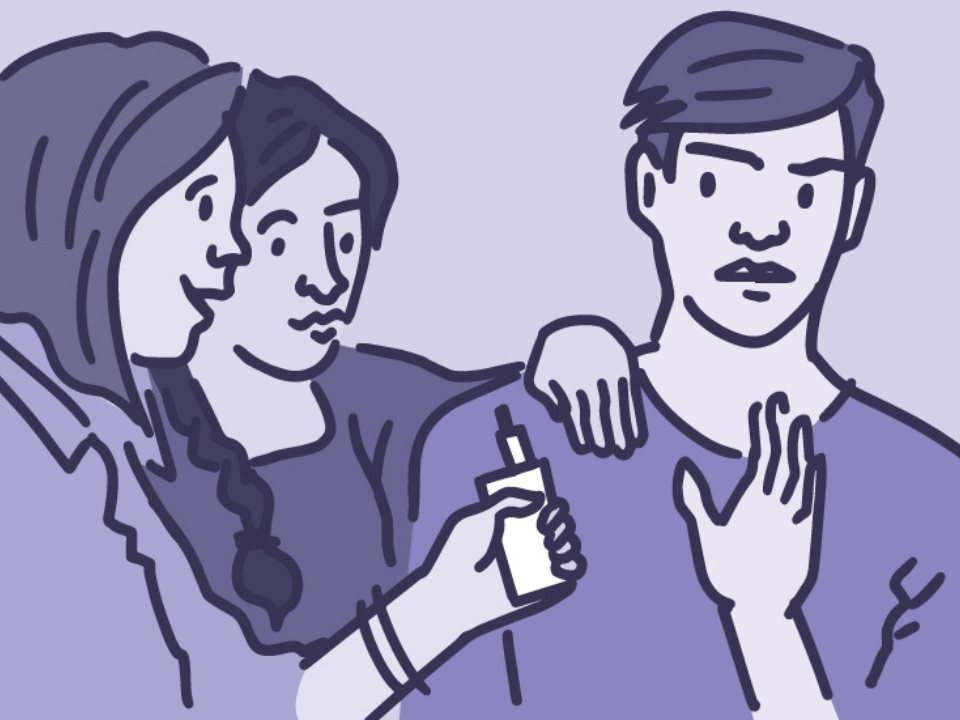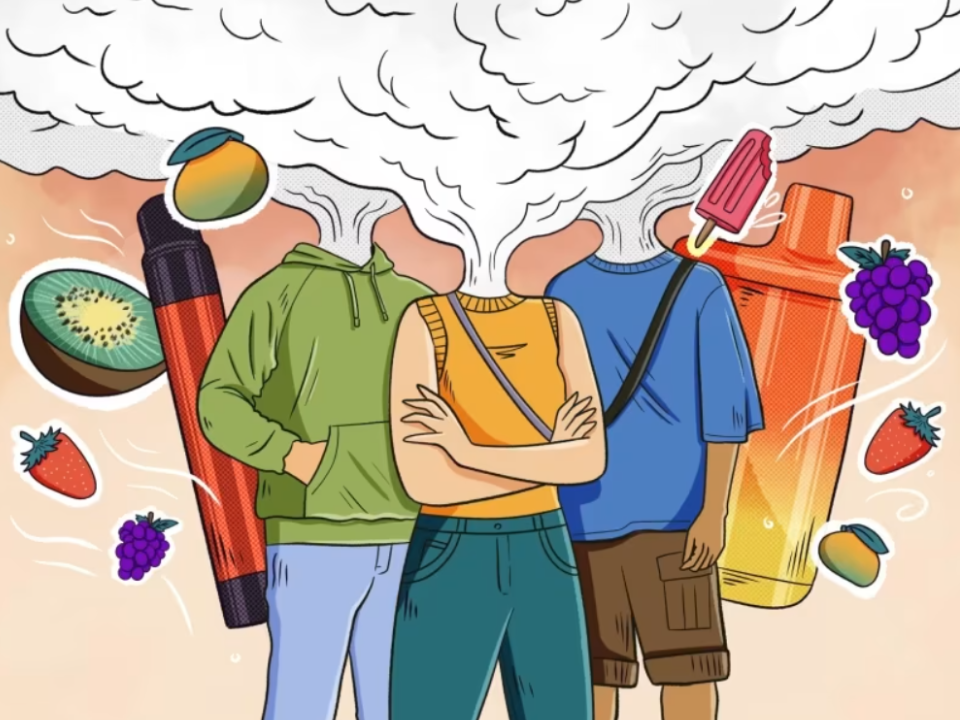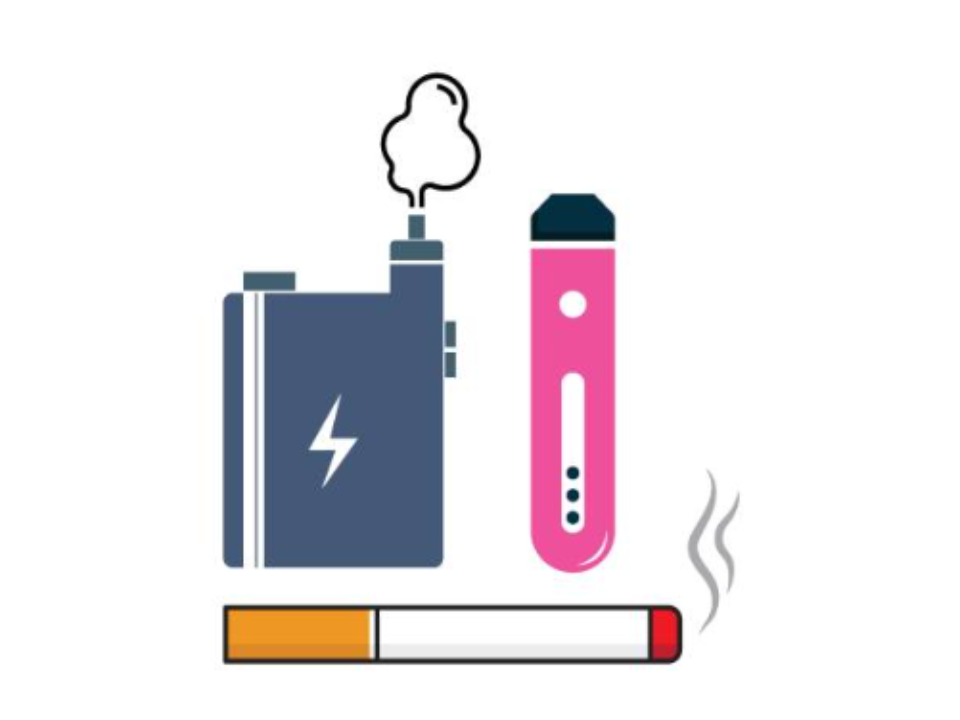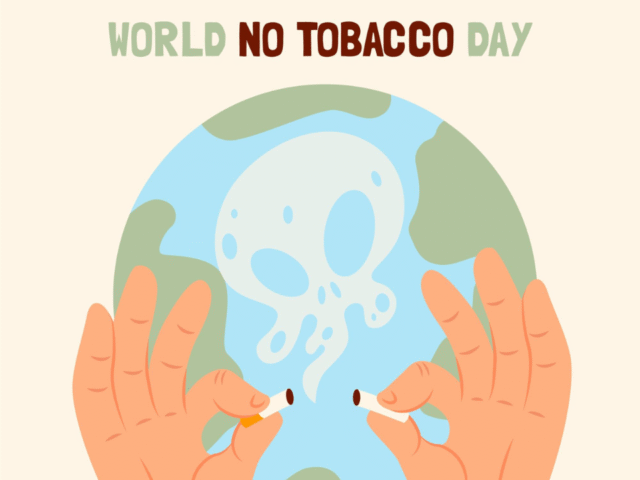
Image via newsinhealth
Vaping has become the new face of addiction. What once began as a smoking cessation tool is now a stylish, flavoured, and youth-driven trend that’s gripping teenagers across Malaysia. This World No Tobacco Day 2025, the World Health Organization (WHO) is sounding the alarm with the theme “Unmasking the Appeal: Exposing Industry Tactics on Tobacco and Nicotine Products.”
In Malaysia, this theme hits close to home. A silent epidemic is growing, and it’s targeting our youth with calculated precision.
The Alarming Growth of Vaping Among Teens in Malaysia

Image via channelnewsasia
The numbers speak volumes. In 2011, just 0.8% of Malaysians vaped. By 2023, that figure skyrocketed to 5.8%, or 1.4 million people. Even more shocking is the trend among teenage girls. In 2017, only 2.8% of girls aged 13–17 vaped. By 2022, that number had more than doubled to 6.2%—four times higher than those who smoked traditional cigarettes.
Why the spike? It’s not just about access, it’s about attraction. Vape companies have shifted their focus from adults to teens, and they’re succeeding. With flavours like bubble gum, mango, and candy, sleek designs, and influencer-led promotions on Instagram and TikTok, vaping is no longer a health risk in the eyes of youth, it’s a lifestyle.
These products are marketed as fun, safe, and harmless. But that’s the illusion. The reality is much darker.
The Real Cost of Vaping & What They’re Not Telling You

Image via iStock
Many teens believe they can quit anytime. Unfortunately, that’s a myth. Nicotine is one of the most addictive substances, especially dangerous to the developing teenage brain. It impairs memory, reduces attention, and raises the risk of anxiety, depression, and future addiction.
In Malaysia, cases of seizures, breathing problems, and even deaths linked to contaminated or high-nicotine vape liquids have already been reported. This is no longer a foreign problem. It’s happening here, in our schools and homes.
While Malaysia passed the Control of Smoking Products for Public Health Act 2024, it removed one critical provision: the Generational End Game (GEG) clause. This clause would have banned nicotine product sales to anyone born after 2007. Without it, future generations remain vulnerable.
The WHO urges every country including Malaysia to expose the industry’s deceptive tactics. These include:
- Youth-centric flavours that disguise harmful chemicals as sweet treats
- Social media influencers who glamorize vaping for likes and shares
- Deliberate marketing that targets teen insecurities and curiosity
If we don’t act now, we hand over our children’s health to an industry that profits from addiction.
Here’s What Malaysia Must Do
The time for awareness alone has passed. We need action.
- Ban flavoured vape products. These flavours serve no purpose for adult cessation and are clearly designed to appeal to minors.
- Reinstate the Generational End Game policy. Protect the youth of tomorrow by legally limiting access today.
- Strengthen enforcement. Retailers, especially online must implement strict age verification, remove youth-targeted ads, and face serious penalties for violations.
- Regulate vape content on social media. Collaborate with tech companies to restrict exposure to minors and run counter-campaigns that highlight real health risks.
- Educate teachers, parents, and students. Programs like Kesihatan Oral Tanpa Amalan Merokok (KOTAK) should be expanded in schools. Equip families and educators to identify signs of addiction early.
- Offer youth-friendly cessation support. Teens who want to quit must have access to counselling and treatment—without judgment.

Image via Freepik
This World No Tobacco Day is more than a date on the calendar. It’s a reminder that silence is complicity. We must not let another generation be manipulated, misinformed, and mistreated by a nicotine industry hiding behind flavours and filters.
Let us choose to protect, not profit off our youth. Let us fight back with facts, policies, and compassion. And let us never forget: addiction starts with a puff, but it ends with consequences that last a lifetime.
About the Author

Dr Wee Lei Hum is a Professor at the School of Medicine, Faculty of Health & Medical Sciences, Taylor’s University. With a deep commitment to public health and youth advocacy, Dr Wee frequently writes and speaks on the dangers of tobacco and nicotine addiction, especially among vulnerable populations. In this opinion piece, Dr Wee sheds light on how the vaping industry strategically targets Malaysian youth and emphasizes the urgent need for stronger policies, public education, and accessible cessation programmes to protect the nation’s future generations.










